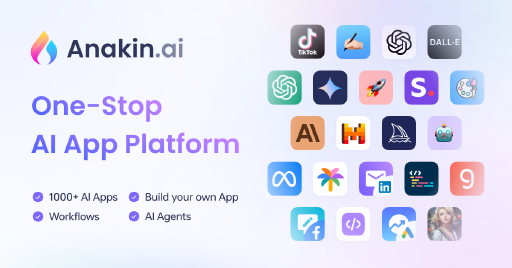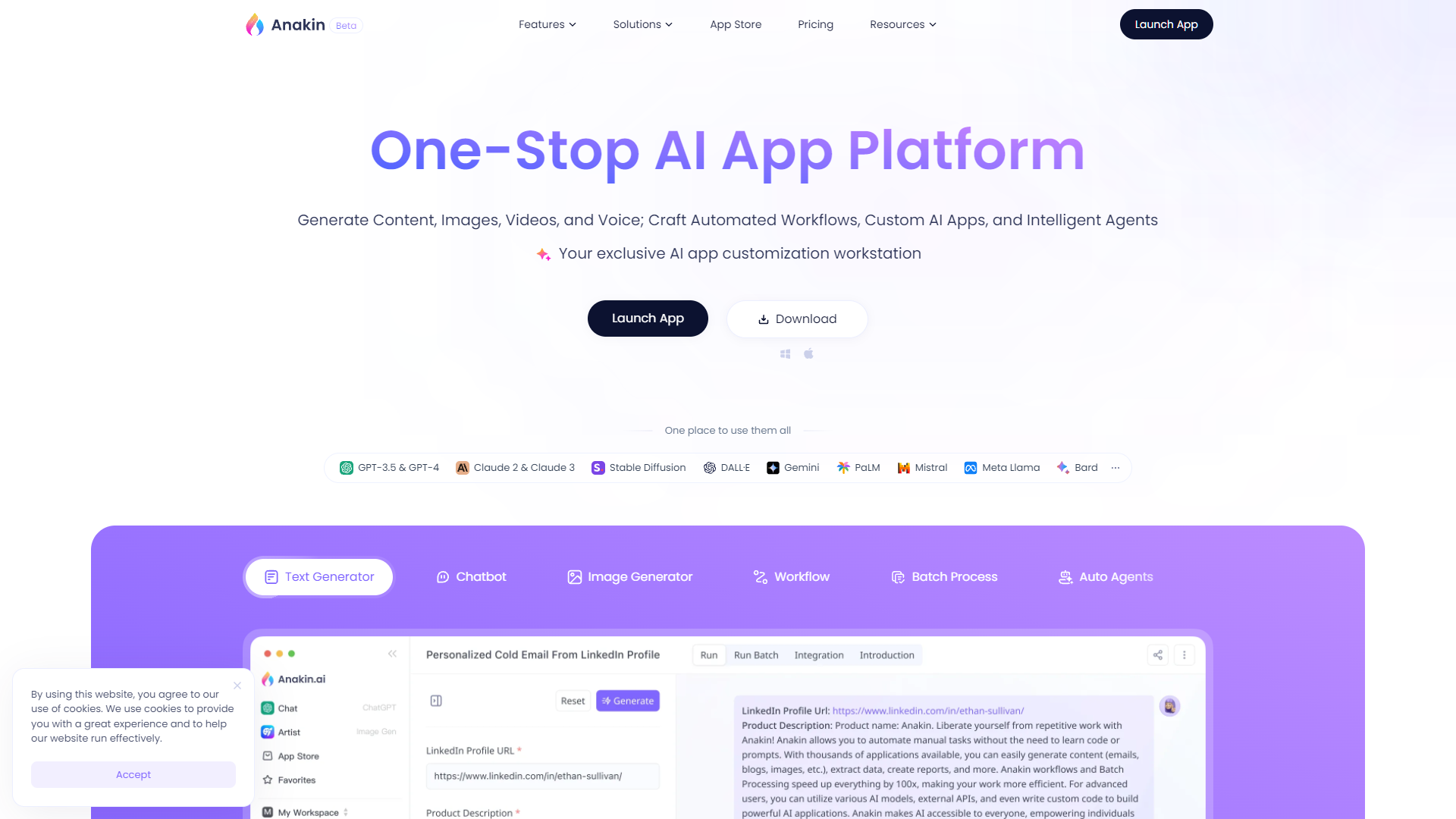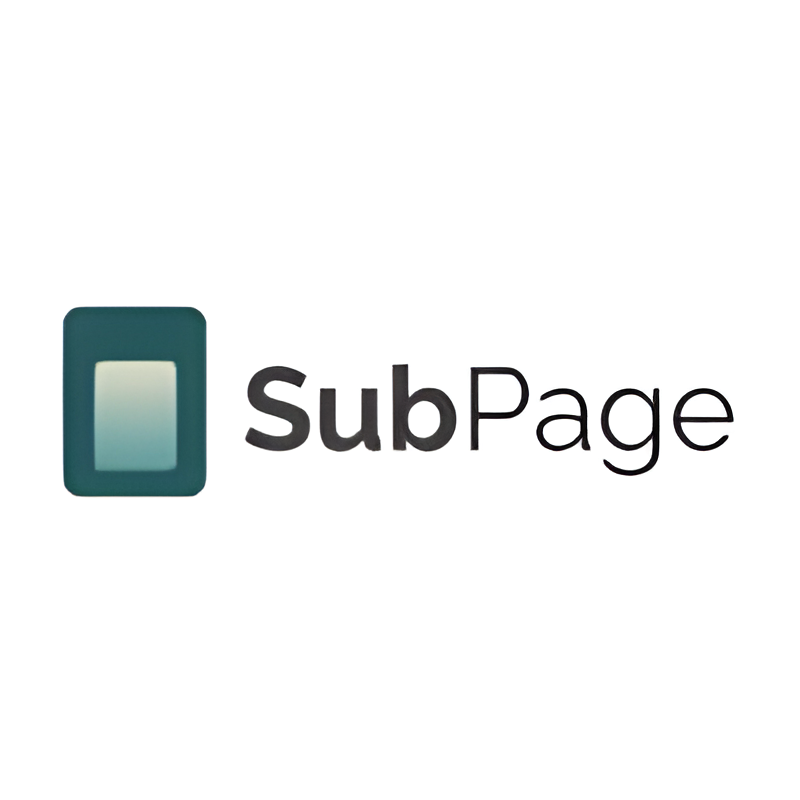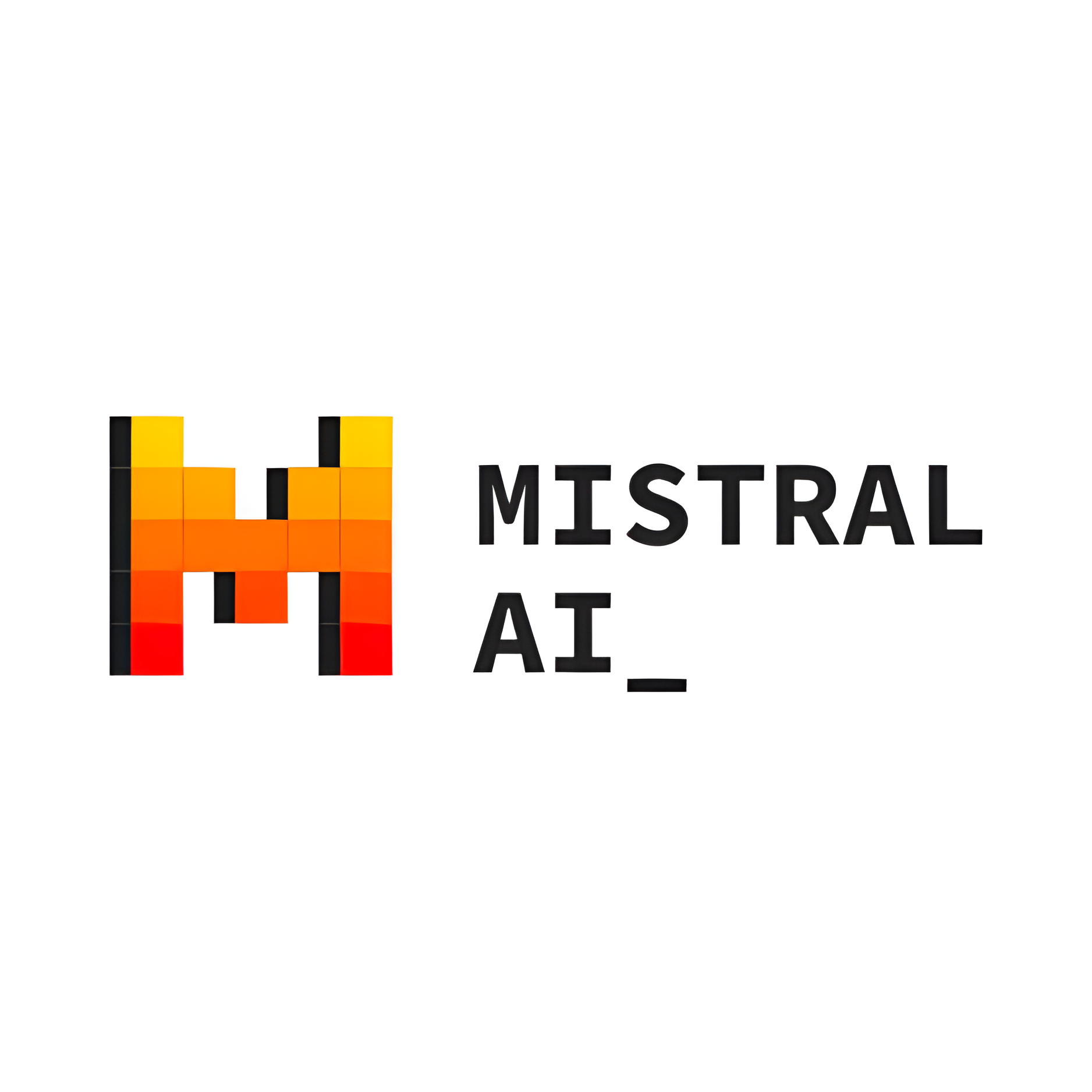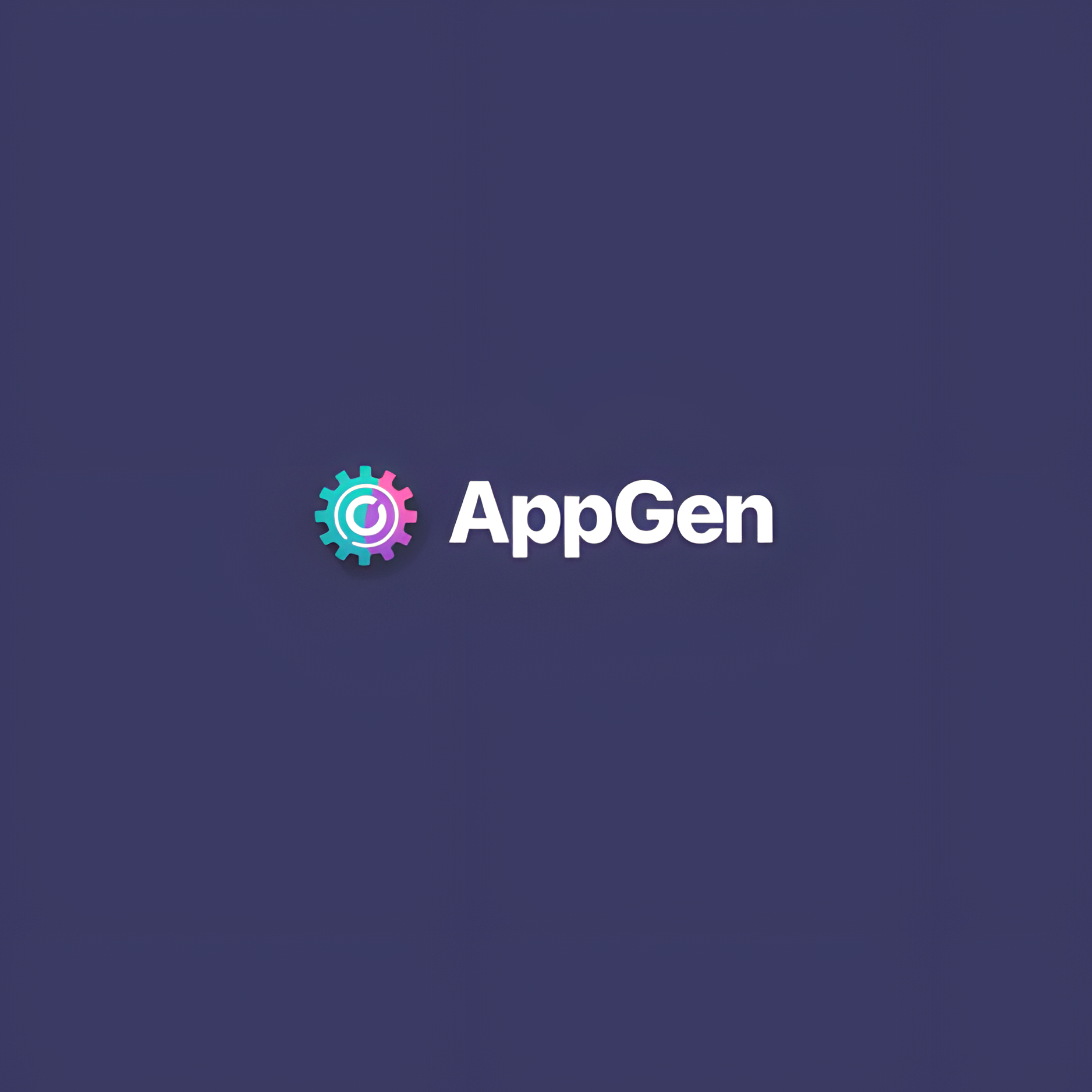Overview
Anakin AI is a versatile AI application platform designed to enhance productivity and streamline task execution across various domains. This platform provides a robust suite of over 1000 pre-built AI apps, catering to diverse needs such as content creation, document searching, and process automation. Users can effortlessly select and customize these applications to fit their specific requirements, enabling efficient task handling without the need for extensive coding skills.
Key to Anakin AI's appeal is its no-code AI app builder, which allows users to create custom AI-driven applications within minutes. This feature supports the development of text, image, and video generators, as well as complex workflows and automation agents, all through an intuitive user interface. Additionally, the platform supports batch operations, facilitating the processing of large datasets with ease and efficiency.
Anakin AI also offers capabilities for building chatbots, training AI models like ChatGPT on proprietary data, and integrating AI functionalities into existing systems. This seamless integration ensures that users can enhance their existing tools and workflows with advanced AI capabilities. With a focus on making AI accessible, Anakin AI provides ample resources including documentation, a blog, and a community forum, supporting users at every step of their AI implementation journey.
Key features
- No-code AI app builder: Quickly create custom AI applications without any coding knowledge using an intuitive, user-friendly interface.
- Pre-built AI apps: Access over 1000 ready-to-use AI apps for various tasks like content generation, enhancing productivity without prior setup.
- Customizable workflows: Design and automate complex processes tailored to specific business needs, improving efficiency and output.
- Batch processing capabilities: Execute AI apps on large datasets simultaneously, saving time and scaling operations effectively.
- Integration with existing tools: Seamlessly incorporate AI functionalities into daily tools and platforms, enhancing existing software capabilities.
- Community and support resources: Benefit from a comprehensive support system including documentation, a blog, and a user community to assist in AI adoption.
 Pros
Pros
- Real-time analytics: Monitor AI application performance and user interactions in real-time, enabling immediate insights and adjustments for optimal functionality.
- Scalable infrastructure: Easily scale AI solutions as business needs grow, without the need for significant additional investments in hardware or resources.
- Data security protocols: Ensure the protection of sensitive data with robust security measures, compliance standards, and encrypted data transactions.
- Multi-platform compatibility: Use AI applications across various devices and platforms, providing flexibility and accessibility for users on-the-go.
- Visual data insights: Transform complex data into easy-to-understand visual reports, helping to make informed decisions quickly and accurately.
 Cons
Cons
- Limited customization options: While workflows are customizable, the depth of customization may not meet the needs of highly specialized industries.
- Dependence on templates: Heavy reliance on pre-built apps can limit innovation and adaptation to unique business challenges.
- Complex integration scenarios: Seamless integration is promised, but complex systems may require significant tweaking and testing.
- Generic AI solutions: AI applications may not fully understand niche or industry-specific nuances, potentially affecting the accuracy of tasks.
- Overwhelming feature set: The vast array of features and tools can be daunting for new users, leading to a steep learning curve.

